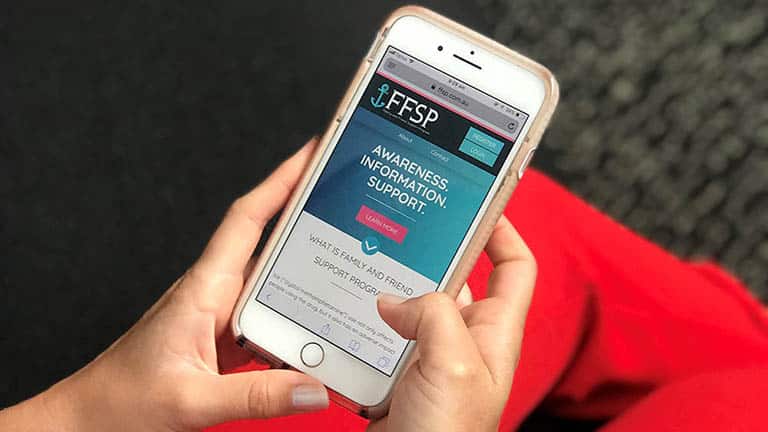
A resilience and well-being program designed to help family and friends supporting loved ones who use crystal methamphetamine is set for a major expansion.

A resilience and well-being program designed to help family and friends supporting loved ones who use crystal methamphetamine is set for a major expansion.
The Family and Friends Support Program (FFSP) will be developed further, including the introduction of a smartphone application, with the support of a $911,000 grant.
The funding will also facilitate the program’s expansion to help families and friends whose loved ones are using drugs such as ecstasy, prescription opiates, heroin, cannabis and alcohol.
University of Newcastle Professor Frances Kay-Lambkin*, a researcher with the Hunter Medical Research Institute’s Brain and Mental Health Program, said the FFSP was the first, and only, evidence-informed program worldwide to offer 24/7 support to family members and friends affected by a loved one’s use of crystal methamphetamine (Ice).
“Ice use not only affects people using the drug, it also has an adverse impact on their family, friends, and their community,” Professor Kay-Lambkin said.
“Families and friends can play a critical role in the recovery of people using Ice, however supporting someone who is using can be extremely stressful. The FFSP aims to provide affected family and friends with a tailored, research-informed website to assist them best manage the demands of this role.”
Through the program health workers, such as nurses, doctors, and mental health professionals, are provided with access to training, information, and a referral pathway, which assists affected families and friends they encounter as part of their usual practice.
The FFSP website includes useful information such as:
The 2016 National Drug Strategy Household Survey found that 6.3 per cent or 1.3 million Australians over the age of 14 had ever used methamphetamine (including Ice, speed or base) and 1.4 per cent reported recent use (in the past 12 months).
Among regular methamphetamine users, there has been a 36 per cent increase in the use of Ice from 2010 to 2016.
“We want to help families and friends develop an understanding of how they can keep being the supportive person in someone’s life who is using Ice, alcohol or other drugs, but also provide the motivation needed to encourage a change in their behaviour,” Professor Kay-Lambkin said.
The next phase of the program, due to rollout from January 2019, will include the development of additional content and resources, the smartphone app and a new feature – a moderated social network to address the social isolation affected family and friends frequently face.
“We often hear how challenging and very lonely it can be when trying to support someone who is using Ice or other drugs. Connecting people through a dedicated social network will allow supporters to connect, share their experiences and offer encouragement to one another in a safe and private environment,” Professor Kay-Lambkin said.
“Development of a smartphone application, to complement the program, will enable information to be readily available, at times when people need it most.
“There is tremendous goodwill to prevent escalation of drug and alcohol use and experimentation into a substance use disorder, but there is also despair about how to help their loved one gain control, or quit their current levels of drug use or drinking.
“The expansion of the FFSP will work to address this need and support the people who are supporting others.”
The FFSP is an important component of the overarching Cracks in the Ice – Community Ice Toolkit, which was developed following the National Ice Taskforce in 2015 to address the known gap in the implementation of evidence-based drug and alcohol prevention approaches in Australia.
The FFSP is supported by Australian Government Department of Health funding.
* Professor Kay-Lambkin researches with the University’s Priority Research Centre for Brain and Mental Health, the Priority Research Centre for Stroke and Brain Injury and Hunter Medical Research Institute (HMRI) Brain and Mental Health Program. HMRI is a partnership between the University of Newcastle, Hunter New England Health and the community.
HMRI would like to acknowledge the Traditional Custodians of the land on which we work and live, the Awabakal and Worimi peoples, and pay our respects to Elders past and present. We recognise and respect their cultural heritage and beliefs and their continued connection to their land.

Hunter Medical Research Institute
We’re taking healthy further.
Locked Bag 1000
New Lambton
NSW, Australia, 2305



This site is protected by reCAPTCHA and the Google Privacy Policy and Terms of Service apply.
Copyright © 2024 Hunter Medical Research Institute | ABN: 27 081 436 919
Site by Marlin Communications
